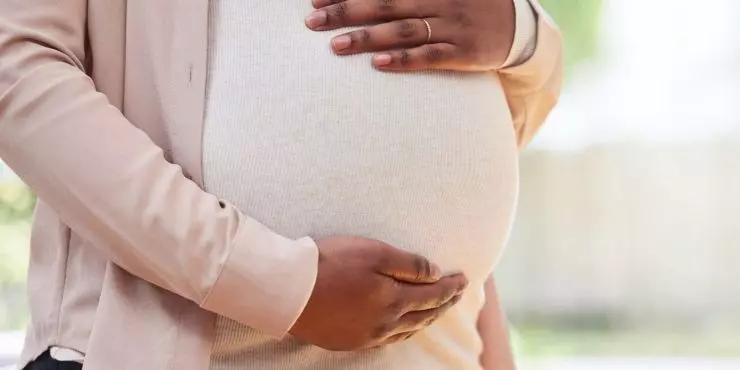
Nothing is more exciting than preparing to welcome a new baby into your family. You have undoubtedly begun decorating their nursery and shopping for all of the new baby essentials, but that excitement may be halted by complications that may be experienced during pregnancy, like pre-eclampsia.
What is Pre-Eclampsia?
Pre-eclampsia is a serious pregnancy complication that affects approximately 5-8% of pregnant women. It is characterized by high blood pressure and damage to organs such as the liver and kidneys. If left untreated, this condition can be fatal for both the mother and the baby.
Causes of Pre-Eclampsia
The exact cause of pre-eclampsia is unknown, but certain risk factors may increase a woman's likelihood of developing it. These include:
- First-time pregnancy
- Women over the age of 40
- Carrying twins, triplets, or more than one baby during pregnancy
- Obesity
- Family history of pre-eclampsia.
Symptoms of Pre-Eclampsia
Pre-eclampsia can be challenging to diagnose as the symptoms vary significantly from woman to woman. Some common symptoms include:
- High blood pressure - 140/90 mm Hg or higher.
- Protein in the urine can be detected by a simple urine test. This can be a sign of kidney damage.
- Swelling in the hands, feet, and face is common in pregnancy, but excessive swelling can be a sign of pre-eclampsia.
- Severe headaches that don't go away with over-the-counter pain relief
- Vision problems include blurred vision, flashing lights, or seeing spots.
Treatment of Pre-Eclampsia
Treatment will vary from woman to woman, but the only cure for pre-eclampsia is the delivery of the baby. If pre-eclampsia develops before 37 weeks of pregnancy, the doctor may recommend early delivery of the baby. If the baby is not yet fully developed, the doctor may need to monitor the mother and baby closely until it is safe to deliver.
In addition to delivery, some treatments can help manage the symptoms of pre-eclampsia. These include:
- Blood pressure medication
- Anticonvulsant medication
- If the baby needs to be delivered early, corticosteroids can help mature the baby's lungs and reduce the risk of respiratory distress syndrome.
Prevention of Pre-Eclampsia
While there is no guaranteed way to prevent pre-eclampsia, there are some steps that women can take to reduce their risk. These include:
Attend Regular Prenatal Care Appointments
Attending all prenatal appointments and following the doctor's advice can help identify pre-eclampsia early and reduce the risk of complications. During prenatal care, the doctor will monitor the mother's blood pressure, urine protein levels, and other vital signs to detect any signs of pre-eclampsia.
Diet
Eating a healthy diet rich in fruits, vegetables, whole grains, and lean protein sources can help reduce the risk of pre-eclampsia. Some studies suggest that diets high in calcium, magnesium, and omega-3 fatty acids may be especially beneficial for preventing pre-eclampsia.
Exercise Regularly
Regular exercise can help improve blood flow and reduce the risk of high blood pressure, a major risk factor for pre-eclampsia. However, talking to a doctor before starting any exercise program during pregnancy is important.
Avoid Smoking and Alcohol
Smoking and alcohol use can increase the risk of pre-eclampsia and other pregnancy complications. Women should avoid smoking and limit alcohol consumption during pregnancy.
Manage Chronic Conditions
Chronic conditions such as diabetes, high blood pressure, and kidney disease can increase the risk of pre-eclampsia. Women with these conditions should work with their doctors to manage them during pregnancy.
Take Low-Dose Aspirin
Some studies suggest that taking low-dose aspirin (81 mg) daily during pregnancy may help reduce the risk of pre-eclampsia in women who are at high risk. However, women should talk to their doctors before taking medications while pregnant.
Rest and Manage Stress
Getting enough rest and managing stress levels can help reduce the risk of pre-eclampsia. Women should get at least 7-8 hours of sleep each night and practice stress-reducing techniques such as meditation, yoga, or deep breathing.
Talk to Your Doctor
As your physician, we want to do our best to ensure you have a healthy, safe pregnancy, and that means scheduling your regular checkups and asking questions while you are in. Are you still searching for an OB to care for you and your baby throughout your pregnancy and post-delivery? We can help! Book your visit today.